If your PC or game feels laggy, you know how frustrating it can be. Every action takes longer, your screen freezes, and the experience quickly becomes unplayable.
A laggy system can be caused by many factors, from weak hardware to poor internet or even background programs slowing things down. Knowing the root cause is the key to fixing it.
When your favorite game turns laggy, it ruins the fun. In this guide, we’ll explain what laggy really means, why it happens in popular games like Fortnite, Roblox, and Minecraft, and the quick fixes that can help you play smoothly again. So, let’s go!
What Does Laggy Mean?
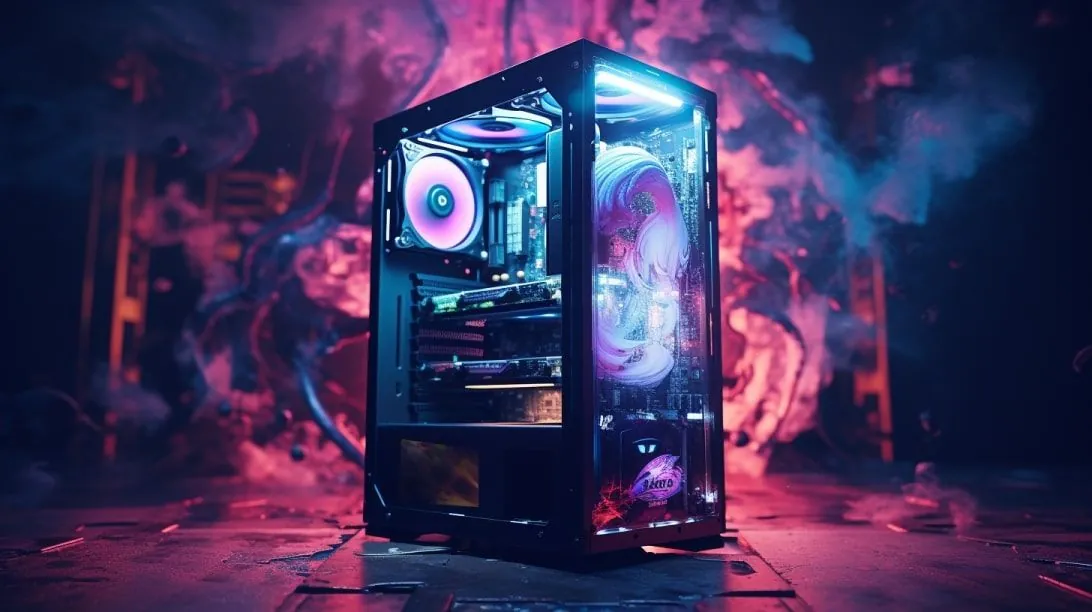
The word laggy is commonly used by gamers and PC users to describe a slow or unresponsive experience. It comes from the English word lag, which means a delay or slowdown. When your system feels laggy, actions take longer than expected, and the screen may freeze or stutter.
In gaming, laggy usually refers to problems caused by internet delay, server instability, or performance issues on your own device. However, it’s important to know that being laggy can also come from low FPS, overheating hardware, or overloaded memory.
Many players confuse the term with similar issues, but each one has a different meaning:
- Lag: Network delay that makes your actions reach the server late;
- FPS drop: A decrease in frames per second, making gameplay feel choppy;
- Stutter: Sudden pauses or micro-freezes, even if the FPS looks stable.
In short, when a PC or game is called laggy, it can mean network problems, hardware limitations, or both. That’s why identifying the type of lag is the first step toward finding the right fix.
Why is My PC Laggy?
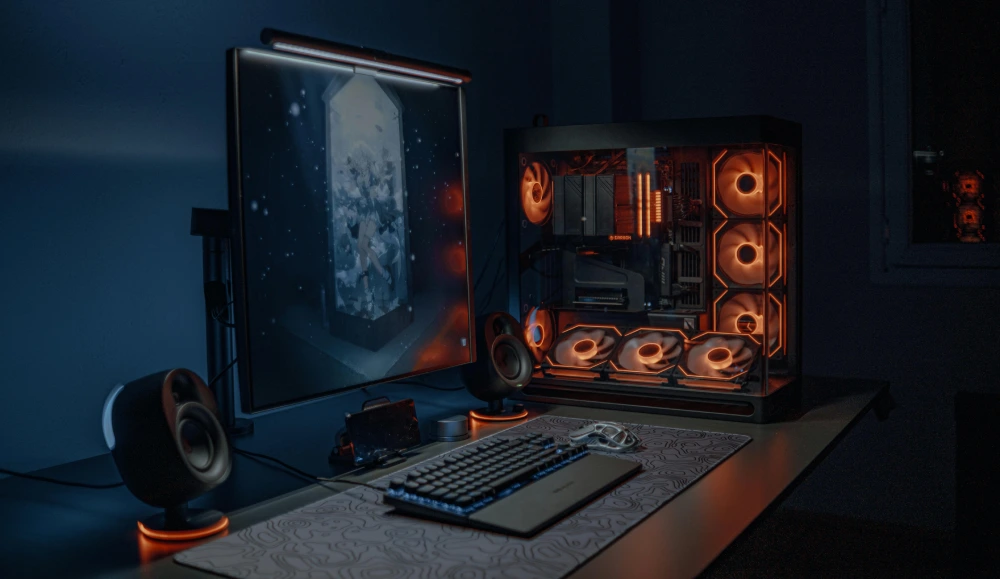
A laggy PC can turn even the simplest task into a slow and frustrating experience. From browsing the internet to playing demanding games, several issues can cause your system to freeze, stutter, or feel unresponsive.
Common Hardware Issues
One of the main reasons a computer feels laggy is outdated or overloaded hardware. If your CPU, GPU, or memory cannot keep up with modern games, you will notice delays and performance drops. Upgrading to an SSD or adding more RAM often makes a huge difference in speed.
Internet Problems
A laggy PC is not always about hardware. Sometimes, slow or unstable internet creates delays when loading websites or syncing online games. A tool like ExitLag can optimize your connection and reduce packet loss for smoother performance.
Storage and Background Programs
When your storage is almost full or fragmented, your system slows down. At the same time, background programs can consume CPU and memory, leaving fewer resources for your games. Cleaning your startup apps and freeing disk space are simple fixes that often stop your PC from feeling laggy.
Lag vs FPS Drop vs Stutter
Gamers often use laggy to describe any slowdown, but there are key differences:
- Lag: Network-related delays between your input and the server’s response;
- FPS Drop: Lower frames per second caused by hardware limitations;
- Stutter: Micro-freezes that break smooth gameplay, even at stable FPS.
Understanding these differences helps you know whether your laggy PC problem comes from hardware, software, or the internet. This way, you can apply the right fix instead of guessing.
Why Are My Games Laggy?
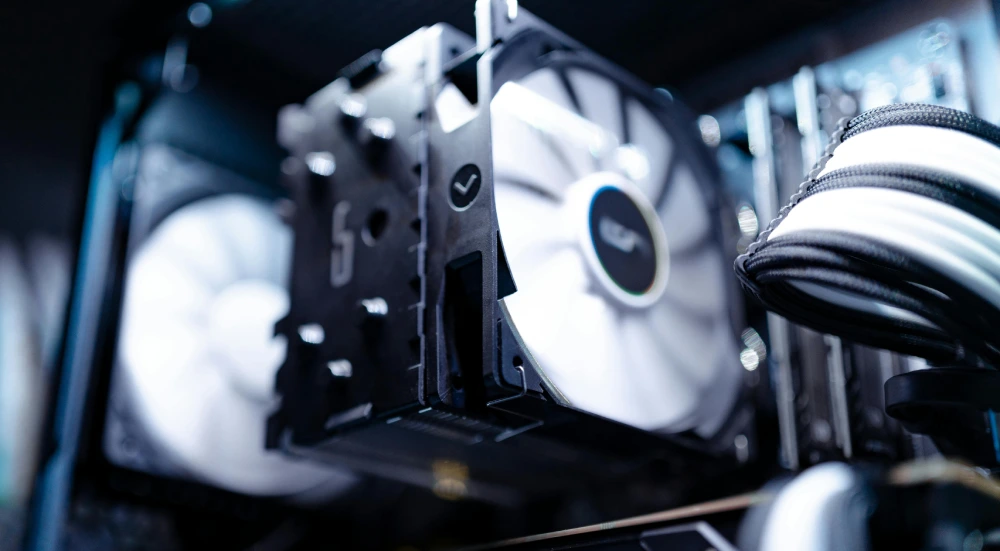
When your favorite game turns laggy, the problem might not always come from your PC. Games rely on both stable hardware performance and consistent online connections. Below, we explain the main reasons and fixes for popular titles.
Fortnite
Fortnite often feels laggy because of high server demand, unstable connections, or heavy graphics settings. Lowering resolution, disabling shadows, and using optimized routes can make a huge difference. For a complete guide, check out our Fortnite lag fix.
Valorant
In competitive shooters like Valorant, even a small delay makes the game feel laggy. Low FPS, background apps, or unstable ping are the most common causes. Adjusting graphics and using connection tools help reduce delays. Learn more in our Valorant lag fix.
Roblox
Roblox can get laggy both on PC and mobile. Weak hardware, overloaded servers, or unstable Wi-Fi usually cause slowdowns. Lowering graphics in settings and closing extra apps often solve the issue quickly.
Minecraft
Players often ask: “Why is Minecraft so laggy?” The answer depends on the type of lag. Server lag happens when too many players connect at once, while FPS drops come from graphics and hardware. Reducing render distance and updating drivers are quick fixes.
Call of Duty & Wuthering Waves
Heavy AAA titles like Call of Duty or new releases such as Wuthering Waves often feel laggy due to high system requirements. Lowering settings and optimizing your connection are essential. See more in our Call of Duty optimization guide.
The First Descendant
As a demanding new game, The First Descendant is prone to laggy performance on mid-range PCs. Adjusting textures and using ExitLag to stabilize your network path can significantly improve gameplay.
Quick Overview: Why Games Get Laggy
| Game | Main Causes | Quick Fixes |
| Fortnite | Server overload, high graphics. | Lower settings, use Fortnite lag fix. |
| Valorant | Low FPS, unstable ping. | Optimize graphics, Valorant lag fix. |
| Roblox | Weak hardware, Wi-Fi instability. | Reduce graphics, close background apps. |
| Minecraft | Server lag, FPS drops. | Lower render distance, update drivers. |
| Call of Duty | Heavy graphics, unstable network. | Lower textures, Call of Duty optimization. |
| Wuthering Waves | High system requirements. | Optimize settings, stabilize connection. |
| The First Descendant | Mid-range PC bottlenecks. | Adjust graphics, use ExitLag. |
How to Make My PC Less Laggy
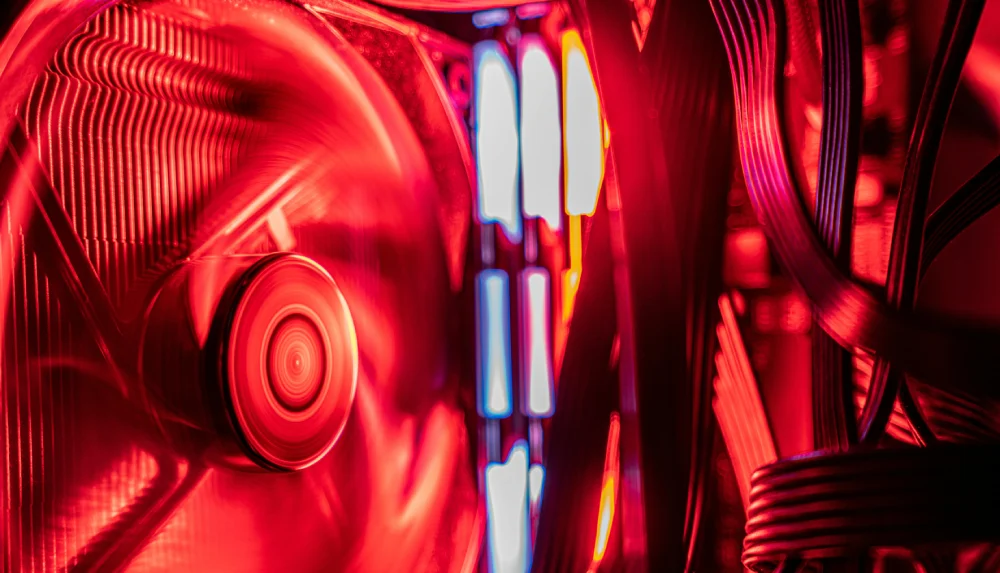
A PC that feels laggy doesn’t have to stay that way. Many common problems can be solved with simple adjustments. By following a structured approach, you can improve overall performance and reduce delays in games and daily tasks.
Step 1: Check Your Hardware
Your CPU, GPU, and RAM are crucial for smooth performance. If your system is outdated or underpowered, it will naturally feel laggy. Consider the following actions:
- Upgrade RAM: Adding memory allows your PC to handle more tasks simultaneously;
- Switch to SSD: Replacing a hard drive with an SSD drastically improves load times;
- Update drivers: Keeping GPU and CPU drivers current ensures compatibility with modern games.
Step 2: Optimize Storage and Startup Programs
Storage issues and unnecessary background programs often make a PC laggy. To fix this:
- Clean up disk space: Remove unused files and applications to free resources;
- Disable startup apps: Many programs run automatically, consuming CPU and memory;
- Defragment your HDD: For older systems, defragmentation can improve file access speed.
Step 3: Improve Internet Stability
Even if your hardware is strong, a laggy PC online can be caused by unstable connections. Use tools like ExitLag to optimize your routes and reduce packet loss, which makes games smoother.
By systematically addressing hardware, storage, and internet issues, you can significantly reduce the laggy behavior of your PC and enjoy smoother gameplay and daily use.
How to Make My Games Less Laggy
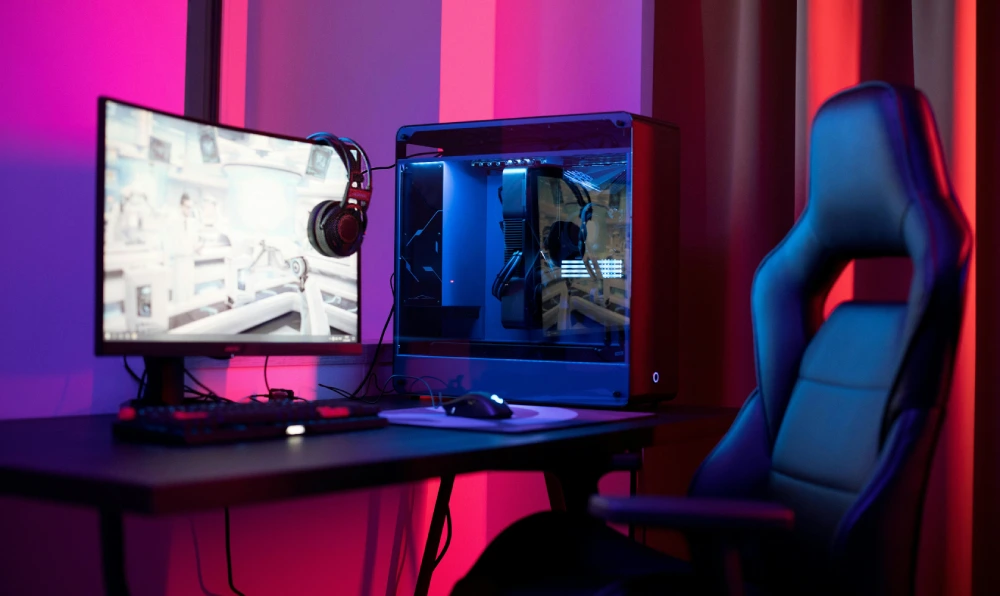
Games can feel laggy even on a powerful PC. This usually happens due to graphics settings, FPS drops, or unstable online connections. By following these steps, you can improve performance and enjoy smoother gameplay.
Step 1: Adjust Graphics Settings
High graphics settings can make games laggy, especially on mid-range PCs. To optimize performance:
- Lower resolution: Reducing the resolution can significantly boost FPS;
- Disable shadows and effects: Shadows, reflections, and post-processing can strain your GPU;
- Reduce render distance: For games like Minecraft and Roblox, lowering render distance reduces lag.
Step 2: Boost FPS and System Performance
Even after adjusting settings, some games may still feel laggy. Try these techniques:
- Close background programs: Free up CPU and memory for your game;
- Enable FPS boost tools: Certain software can optimize frame rates automatically;
- Update your game and drivers: Keeping everything current avoids performance issues.
Step 3: Optimize Your Connection
Network issues often make online games laggy, even on strong hardware. Using ExitLag can help:
- Reduce packet loss: Ensures smoother interactions in multiplayer games;
- Improve routing: Optimizes the path between your PC and the game server;
- Stabilize ping: Prevents sudden spikes that make games feel unresponsive.
By adjusting graphics, boosting FPS, and optimizing your connection, you can significantly reduce the laggy experience and enjoy your favorite games at their best.
FAQ
A laptop can feel laggy due to old hardware, low memory, or too many background programs running simultaneously. Updating drivers and freeing resources often helps.
Roblox may be laggy because of high graphics settings, weak hardware, or unstable internet. Lowering graphics and closing extra apps can improve performance.
Minecraft can become laggy from server overload, FPS drops, or high render distance. Reducing render distance and updating drivers usually fixes it.
Fortnite often feels laggy due to network issues, high graphics, or background applications. Check out our Fortnite lag fix for a full guide.
Marvel Rivals can be laggy because of unstable connections or device limitations. Using tools like ExitLag helps stabilize your gameplay.
To reduce a laggy PC, upgrade hardware, free storage, and optimize your connection. Using ExitLag can also improve online game performance.
Say Goodbye to a Laggy PC and Games
No matter the cause, hardware limitations, unstable internet, or demanding games, dealing with a laggy PC or game can be frustrating. By following the steps in this guide, you can identify the problem, apply quick fixes, and enjoy smoother gameplay and daily use.
Remember, even after optimizing settings and hardware, network performance plays a huge role in preventing a laggy experience. Tools like ExitLag not only stabilize your connection but also reduce delays, packet loss, and ping spikes, giving you the edge in online games.
Take control of your system and gaming experience today. Don’t let a laggy PC or game slow you down, optimize your setup now!





